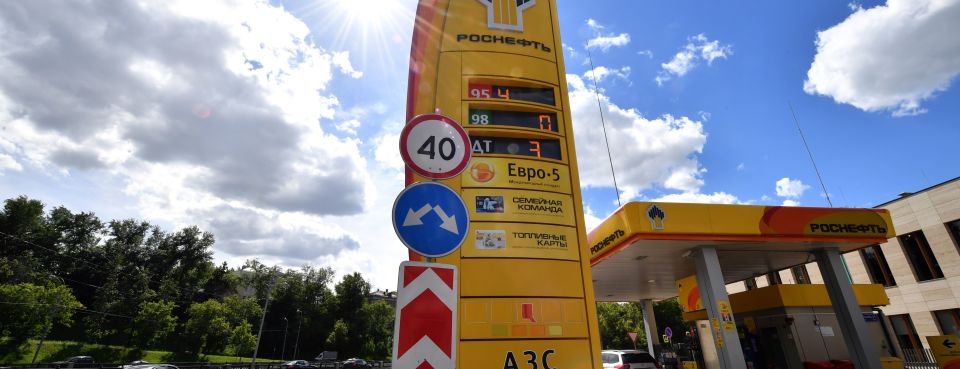Russia’s oil majors thought a new fuel-tax break this year would support the sector. Now, low demand for gasoline in Europe is turning what was expected to be a help into a multi-million-dollar hindrance. “Russian oil companies have become hostages of external market conditions,” said Ivan Khomutov, chief executive of- fi cer of Moscow-based energy consultant Petromarket. Weak gasoline prices in Eu- rope have turned tax calcula- tions upside down for Russian oil companies. Major producers may now have to pay as much as 11bn roubles ($167mn) in extra gasoline levies to the gov- ernment this month alone, ac- cording to Petromarket. This is because the export price for Russian gasoline in Europe has dropped below the baseline set in the tax formula designed to cushion the im- pact of caps on domestic fuel prices. The payments are part of the tax system that comes into force this year and are based on a formula designed to partially compensate fuel producers for potential domestic losses, Alexei Sazanov, director of tax and customs policy at Russia’s Finance Ministry, confi rmed by e-mail. The extra levies add to fi nan- cial pressure that Russian oil majors are set to experience in their downstream businesses in 2019. This is due to the govern- ment raising both fuel excise duty and value added taxes. It has also capped domestic gaso- line and diesel prices to avoid social unrest. “We expect gasoline pay- ments in the range of 3,000 to 4,000 roubles” per ton from oil companies in January, Sazanov said. Russia’s energy ministry also sees the industry paying an additional gasoline tax this month, its press service said by e-mail, adding that it’s too ear- ly to estimate the total amount which will be raised. As the Russian government capped domestic fuel prices last year and locked in minimal crude supply volumes to do- mestic refi neries, it promised the oil industry a tax break to partially make up for potential losses. The export price for gasoline is based on the average monthly price for Russian fuel in the Dutch port of Rotterdam. This is excluding transport costs and export duty but includes the excise and the value-added taxes. As long as the export price for Russian gasoline in northwest Europe stays above the baseline level — set at 56,000 roubles a ton this year — the nation’s oil producers can receive 60% of the price diff erence back every month this year, the govern- ment said. Currently, the export price is around 49,000 roubles, ac- cording to Russia’s energy ministry. With the price below the baseline, Russian produc- ers will now have to make pay- ments to the state budget rather than receive them, according to the tax code. When the law was drafted in mid-2018, European gasoline prices were above the baseline. But declining margins amid a supply glut have changed the outlook for gasoline. If European gasoline margins stay near current levels, Rus- sia’s oil industry may continue paying the surprise tax for as long as Brent crude remains be- low $69 a barrel, Petromarket’s Khomutov said. The interna- tional benchmark is currently trading below $62 a barrel.
Tax break turns into a levy for Russia’s biggest oil companies

Related tags :


